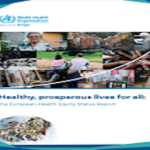Rate of consumption up by 65% in the last 15 years indicating the need for urgent measures to tackle the situation
New Delhi, March 29, 2018: Researchers have identified that the global consumption of antibiotics has soared since the year 2000. This could mean drug-resistant superbugs spiraling out of control and calls for new policies to control and oversee usage of these drugs. With the rate of consumption going up by 65% between 2000 and 2015, the need of the hour is to invest in alternative treatments, sanitation, and vaccination.
Antibiotic resistance, driven by antibiotic consumption, is a growing global health threat. As with climate change, there may be an unknown tipping point, and this could herald a future without effective antibiotics.
Speaking about this, Padma Shri Awardee Dr K K Aggarwal, President Heart Care Foundation of India (HCFI) and Immediate Past National President Indian Medical Association (IMA), said, “Antibiotic resistance is a growing concern and its impact on patients and communities are known to us all. This is a public health problem, one which is rapidly spreading across the globe, with not enough resources to control it. It has made it harder for us to treat many infections such as typhoid, pneumonia, tuberculosis. Antibiotic resistance prolongs hospitalization, increased cost of treatment and increases risk of death. Several studies have corroborated its adverse impact on health. Doctors as well as patients should be aware about and advocate judicious use of antibiotics. Over prescription and self-prescription, both, need to be checked.”
Taking cognizance of the impact of antibiotic-resistant infections, IMA has proposed several initiatives to tackle this public health threat – “Jaroorat Bhi Hai Kya”, “3A Avoid Antibiotic Abuse campaign”, “Use Wisely not Widely”, “Think Before you Ink”.
Adding further, Dr Aggarwal, who is also the Vice President of CMAAO, said, “One of the biggest reasons for the misuse of antibiotics is buying them over the counter without consultation with a doctor. Before prescribing antibiotic, always ask yourself: Is it necessary? What is the most effective antibiotic? What is the most affordable antibiotic? What is the most effective dose? What is the most effective duration for which the antibiotic should be administered?”
Some HCFI tips to combat antibiotic resistance.
- Practice rational use of drugs antibiotics
- Use when needed and according to guidelines
- Avoid broad spectrum antibiotics without appropriate diagnosis
- Prevent infections with the use of vaccination and by improving basic hygiene including hand hygiene and infection control techniques and sanitation in health care settings as well as in the community
- Farmers and food industry must stop using antibiotics routinely to promote growth and prevent disease in healthy animals to prevent the spread of antibiotic resistance.
IMA Antibiotic Policy
- Use the term anti-microbial resistance for doctor and antibiotic resistance for public.
- IMA CLINIK: Every IMA members must follow this policy
- If you have prescribed antibiotics, put the name of the antibiotic in a box, so that the antibiotic can be identified distinctly
- Write the total number of antibiotic tablets/capsules to be taken for the prescribed duration in the prescription and not just the dose administration schedule.
- Put a rider in the prescription “ no refill without doctors current prescription”
- Consider shifting Schedule H antibiotics to H1 and H1 antibiotics to Schedule X
- All food products should be labeled “Antibiotic free”. Antibiotic resistance is also a concern with regard to food safety. The bacteria that contaminate food can be resistant because of the use of antibiotics in people and for growth promotion or disease prevention in healthy food-producing animals.
- Antibiotic waste disposal policy needed to prevent contamination of the environment; discharge of untreated waste into soil and rivers.
- No antibiotics if fever with rash; fever with cough and cold; suspected or confirmed dengue, malaria, chikungunya, viral hepatitis, viral ;
- Early antibiotics in suspected sepsis, meningitis, pneumonia, positive TB
- Costlier and newer antibiotics does not mean they are more effective
- You do not start treatment in TB, HIV, HCV unless the test is positive similarly no antibiotic unless there is an evidence to give.
- Prevent infections with the use of vaccination and by improving basic hygiene, including hand hygiene and infection control techniques and sanitation in health care settings as well as in the community
- Four pillars of infection prevention: Hand Hygiene, Hand Hygiene, Hand Hygiene and Hand Hygiene.
- Every medical establishment must draw its own antibiotic policy ( antibiotic IV to oral switch, antibiotic preference based on local antibiogram, reuse of medical devises and safe syringe practices)
- Notify TB, MDR TB and XDR TB
- Any culture report showing sensitivity to third and fourth generation cephalosporin it is implied it will be sensitive to first and second generation cephalosporin







